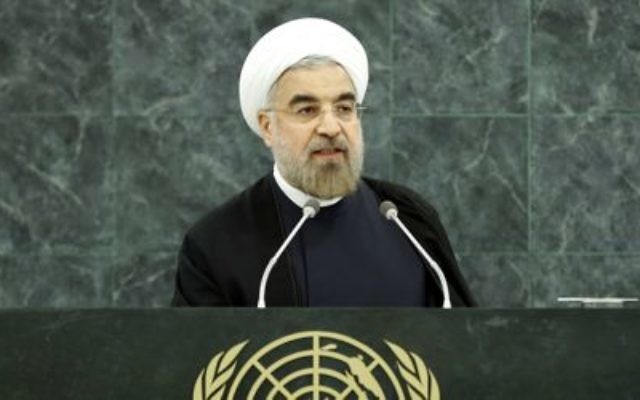Nuclear deal lets Iran ‘buy time’
ISRAEL watchers in Australia are sceptical about a deal hatched between Iran and the West to curb the Tehran regime’s nuclear program in return for easing sanctions.
ISRAEL watchers in Australia are sceptical about a deal hatched between Iran and the West to curb the Tehran regime’s nuclear program in return for easing sanctions.
The six-month interim agreement between the United States, Russia, China, UK, France and Germany (known as P5+1) and Iran, which has repeatedly threatened to annihilate Israel, has been condemned as a “historic mistake” by Israeli Prime Minister Benjamin Netanyahu.
Zionist Federation of Australia (ZFA) president Philip Chester this week described the pact as potentially nothing more than an opportunity for Iran to buy time in its development of nuclear weapons.
“The ZFA notes the view of the Israeli government that a flawed deal is one in which Iran isn’t forced to halt its nuclear program by shutting down facilities, but only slow down its nuclear development,” Chester said.
“More than any other country, Israel is on the frontline, subject to constant threats from Iran which avows Israel’s destruction. It is for this reason that we believe the fears of the Israeli government need to be given serious weight by the international community. Prime Minister Netanyahu aptly expressed distress at Tehran’s bragging that the six-month deal acknowledges its ‘right’ to enrich uranium.”
Chester said the deal, granting Iran $US7 billion in sanction relief before it has started complying, could have “catastrophic implications for Israel, the Middle East and beyond”.
The formula also drew criticism from the Australia/Israel & Jewish Affairs Council, with its executive director Colin Rubenstein saying that while a diplomatic resolution “must of course be everyone’s preferred option”, the interim deal amounts to “a dangerous bargain”.
“It gives Iran six months to demonstrate it will meet its obligations, but immediately lifts substantive sanctions while allowing it to continue enrichment of uranium, all the while still poised to quickly mount a nuclear ‘breakout’ when the time is right,” he said. “It greatly reduces the pressure on Iran by lifting some sanctions, removing the threat of additional sanctions, and by effectively taking the military option off the table.
“In six months’ time, the international community is likely to find itself with little option but to effectively try to bribe Iran to continue to exercise ‘restraint’ – in effect, repeating the unsuccessful efforts to negotiate an end to North Korea’s nuclear program,” said Rubenstein.
PETER KOHN
Iranian president Hassan Rouhani.


comments